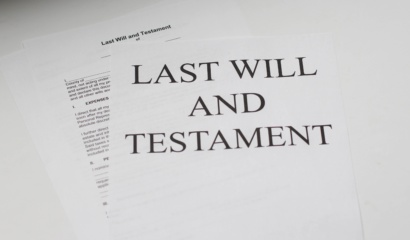Home / Business Legal Lifecycle / Business Succession Planning / Wills for Business Owners
Wills for Business Owners
Advice on Your Company Will
Is your company covered in your will?
A will is a document that sets out your plans for your assets, possessions and belongings when you pass away. One of the main reasons that people avoid having a will is that they don’t want to think about the inevitable. Your business, however, is your legacy so you should decide what happens to it, rather than letting others decide for you. One very common misconception is that people think that if they pass away, their immediate family, in particular their spouse, will receive their estate, including their business, and there will be no disputes. This very rarely happens, especially where multiple parties are entitled to a share of an inheritance.
Various countries and states have differing legislation that complicates matters, depending on whether or not you have a legal will at the time of your death. For instance, in Queensland, Australia, if you die without a will and leave a surviving spouse and children (including those from a previous marriage or relationship), your estate will be divided according to a specific distribution list under the intestacy provisions of the probate laws in Queensland.
For example:
- (a) Your spouse will receive the first $150,000.00 plus half of the rest of your estate
- (b) The remainder of your estate will be divided amongst your children
These provisions may vary depending in which state or territory you live in. Many people find this result surprising as they do not realise the implications of what happens if they pass away without a will. It is critical that, at a bare minimum, you have a will in place that sets out what you want to happen with your estate when you die. You should consult with your lawyer, financial advisers and business advisors before your will is prepared to ensure that your wishes are properly expressed and documented.
You need to be careful here; if you change your mind on any point, you will need to draft an entirely new company will.
Benefits of a Testamentary Trust Will
When drafting a will, it is a good idea that you consider drafting the will to provide a testamentary trust which is essentially a discretionary trust which will come into effect upon the death of the person making the will (testator). A testamentary trust has a trustee (or trustees), and a range of discretionary beneficiaries (for example spouse, children, grandchildren).
There are a number of benefits of a testamentary trust including:
- The trust protects the assets of the estate from being attacked by third parties
- The assets are still controlled by the beneficiaries
- The assets do not form part of the beneficiary’s legal property as they are owned on trust
The last point is particularly relevant where an intended beneficiary faces bankruptcy, as the inheritance provided for in the trust will not form part of the intended beneficiary’s bankrupt estate. Similarly, assets held in the testamentary trust are unlikely to be the subject of a court order in relation to family law proceedings. The assets of the trust, though, may be included as a financial resource and may affect the property settlement. The testamentary trust is created in the will document itself and is usually created upon the death of the person. Using a testamentary trust can save the intended beneficiaries of your estate a lot of issues in the future and means that the beneficiaries of your estate are protected.
From the Case Files
An example where a client did not have a testamentary trust was where the parent died and the son was facing imminent bankruptcy. The bankruptcy was as a result of the son’s ‘dodgy’ business dealings and he had built up significant debts with a variety of creditors. The paret in question had built up a significant portfolio of over $5 million and had left it to her son in a simple will with no testamentary trust established. When the parent died, the assets that the parent left formed part of the estate and when the son was declared bankrupt, all of the assets left to him were seized by the bankruptcy trustee and used to pay creditors. This meant that the intended beneficiary did not receive any of the parent’s considerable estate. Had the parent established a testamentary trust in their will, this would not have occurred and the client would have kept the assets left to him by his parents.
Interested In Discovering Your Legal Risks?
FAQs
Have an Enquiry?






